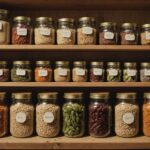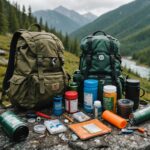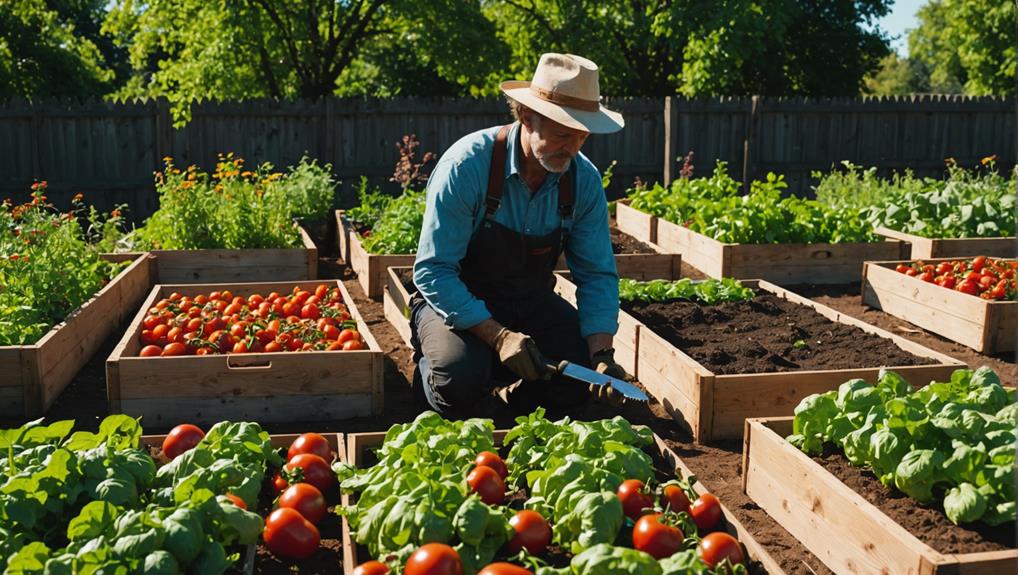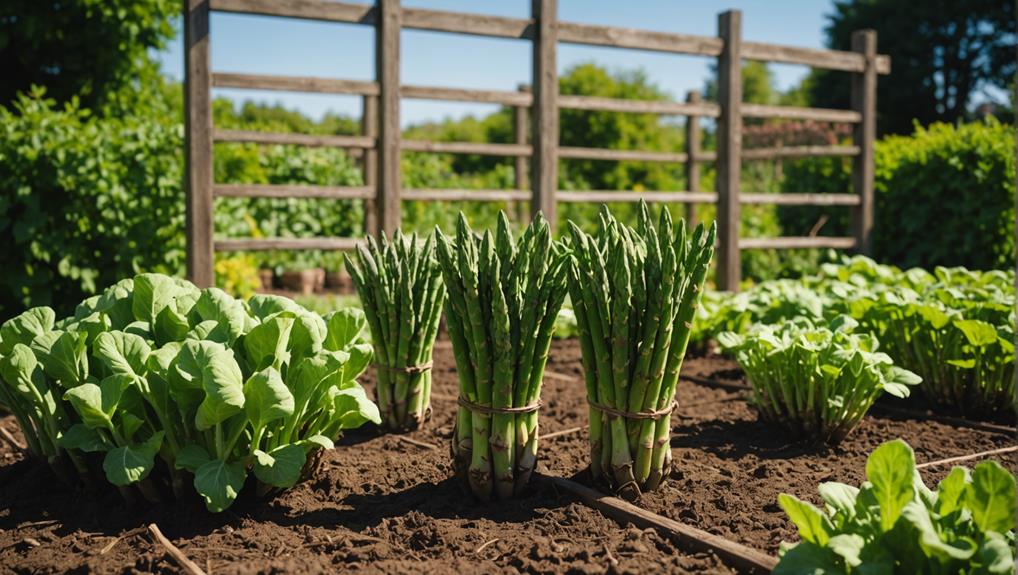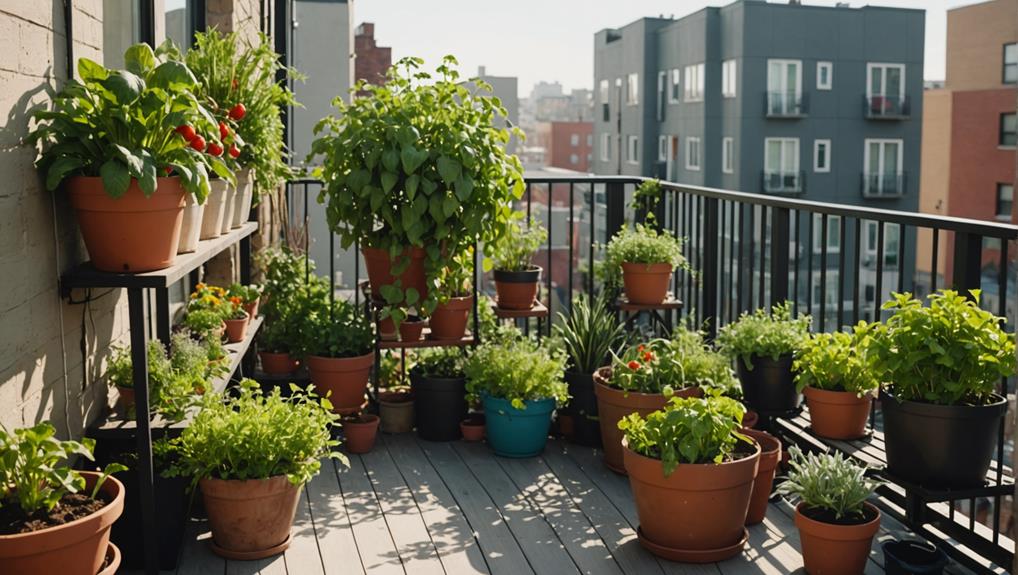As an Amazon Associate I earn from qualifying purchases.
You're interested in prepping, but you're not willing to sacrifice your daily life to do so. You're not alone. The good news is that you don't have to choose between being prepared and living in the present. By incorporating small, manageable tasks into your daily routine, you can make steady progress toward your prepping goals without feeling overwhelmed. But where do you start? What daily habits can you adopt to set yourself up for success? Let's explore seven practical strategies to help you prep without disrupting your daily life – and discover how you can achieve a better balance between the two.
Start Small With Daily Tasks
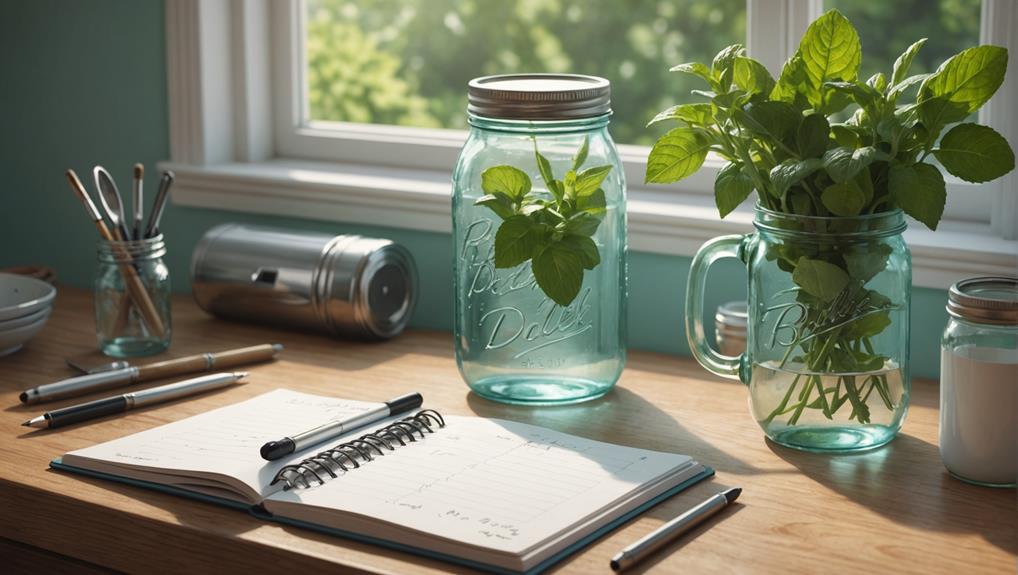
By incorporating just 10-15 minutes of prep into your daily routine, you can set yourself up for success without feeling overwhelmed.
This small time investment can have a significant impact on your productivity and stress levels.
Start by breaking down larger tasks into smaller, manageable chunks through task segmentation.
This will make it easier to tackle each task individually, rather than feeling daunted by an enormous to-do list.
Develop daily habits that work for you, such as waking up 15 minutes earlier to plan out your day or dedicating a short period to reviewing your schedule.
By doing so, you'll be able to identify potential roadblocks and make adjustments accordingly.
This proactive approach won't only save you time but also reduce anxiety and increase your sense of control.
Remember, it's about making small, sustainable changes that you can maintain in the long run.
Prioritize Needs Over Wants
As you start prepping, you'll soon realize that you can't have everything, at least not right away.
You need to prioritize what's essential for your survival and well-being over what's just nice to have.
Essential Vs. Nice-To-Have
You'll be surprised how much you can prep without sacrificing daily life when you prioritize the essential items over the nice-to-haves.
By focusing on the must-haves, you'll be able to allocate your time and resources more efficiently. Essential skills like critical thinking, first aid, and self-defense will take precedence over luxury items.
This mindset shift will help you distinguish between what's necessary for survival and what's merely desirable.
When you prioritize the essentials, you'll find that you're able to prep more effectively without disrupting your daily routine.
You'll be able to allocate your time and resources more efficiently, and make the most of your prepping efforts. By focusing on critical thinking and problem-solving skills, you'll be better equipped to handle unexpected situations and make informed decisions.
Remember, prepping isn't about accumulating stuff; it's about being prepared and self-sufficient.
Must-Have Vs. Want-To-Have
In the midst of prepping for uncertainty, it's essential to distinguish between must-haves that guarantee survival and want-to-haves that cater to comfort.
You can't afford to mix up these two categories, or you'll end up with a stockpile of luxury items that won't keep you alive in a crisis.
Your must-haves should include indispensable tools like first aid kits, water purification systems, and non-perishable food.
These are the items that will keep you and your loved ones safe and healthy when the going gets tough.
On the other hand, want-to-haves are nice-to-have items that can make your life easier and more comfortable, but aren't pivotal to survival.
Examples include camping gear, solar-powered chargers, and gourmet food storage.
While these items can be useful, they shouldn't take priority over your must-haves.
By prioritizing your needs over your wants, you'll safeguard that you're prepared for the worst-case scenario, without breaking the bank or sacrificing your daily life.
Use Your Commute Wisely

As you're getting ready for your day, you're probably thinking about how to make the most of your daily commute.
You can turn this transit time into a productive period by using it to prep for the morning, learn new things, or tackle tasks.
Morning Routine Prep
Turn your daily commute into a productivity powerhouse by dedicating it to morning routine prep, getting a head start on your day before you even arrive at the office.
You can use this time to set yourself up for success by focusing on morning affirmations. Repeat positive affirmations to yourself, such as 'Today is a new day, full of opportunities' or 'I am capable and confident.' This will help you set a positive tone for the day and boost your motivation.
You can also use your commute to reflect on your goals and priorities. Take a few minutes to think about what you want to achieve in the short and long term. Ask yourself, 'What are my top three priorities for the day?' or 'What can I do today to move closer to my long-term goals?'
This will help you stay focused and guarantee that you're making progress towards your objectives. By incorporating morning affirmations and evening reflection into your commute, you'll be able to maximize your productivity and set yourself up for a successful day.
Audio Learning Sessions
You can transform your daily commute into a learning powerhouse by dedicating it to audio learning sessions. Instead of mindlessly scrolling through social media or listening to the same old playlist, you can use your daily commute to expand your knowledge and skills. With audio learning sessions, you can turn your commute into a valuable learning experience.
Create a podcast playlist that aligns with your goals and interests.
Listen to audio summaries of books, articles, or online courses.
Tune in to industry-leading podcasts that offer insights and expertise.
Use audio learning apps that offer bite-sized lessons and exercises.
Record yourself and listen to the playback to improve your communication skills.
Productive Transit Time
Frequently, your daily commute can be repurposed into a productivity powerhouse by utilizing every spare moment wisely.
As a train commuter, you can turn your travel time into a bus productivity session. Instead of mindlessly scrolling through social media, use this time to tackle tasks that require minimal attention, such as responding to emails, making to-do lists, or planning your day.
You can also use this time to learn new skills or listen to educational podcasts. Download language learning apps or listen to industry-specific podcasts to stay ahead of the curve. Even 15-20 minutes of focused learning can make a significant difference in your personal and professional growth.
Moreover, you can utilize your commute to brainstorm ideas, set goals, or reflect on your progress. Take out a journal and jot down your thoughts, ideas, or insights. This will help you clarify your priorities and stay focused on what's important. By repurposing your commute, you'll be amazed at how much more you can accomplish without sacrificing your daily life.
Prep in Short Bursts
Twenty minutes a day is all it takes to prep in short bursts, making it easy to fit into your daily routine. You can dedicate specific time blocks to prep activities, ensuring you're making progress without feeling overwhelmed. This approach is perfect for those with busy schedules, as you can break down larger tasks into manageable burst exercises.
Set a timer for 20 minutes and focus on a single task, like organizing your emergency kit or packing a small bug-out bag.
Use your lunch break to prep, whether it's making a few phone calls or researching emergency services in your area.
Take advantage of commercial breaks while watching TV to quickly prep, such as filling water bottles or packing snacks.
Wake up 20 minutes earlier each day to fit in a quick prep session, like making a to-do list or checking the weather forecast.
Make the most of your daily commute by listening to podcasts or audiobooks related to prepping, helping you stay informed and motivated.
Make Meal Prep a Habit
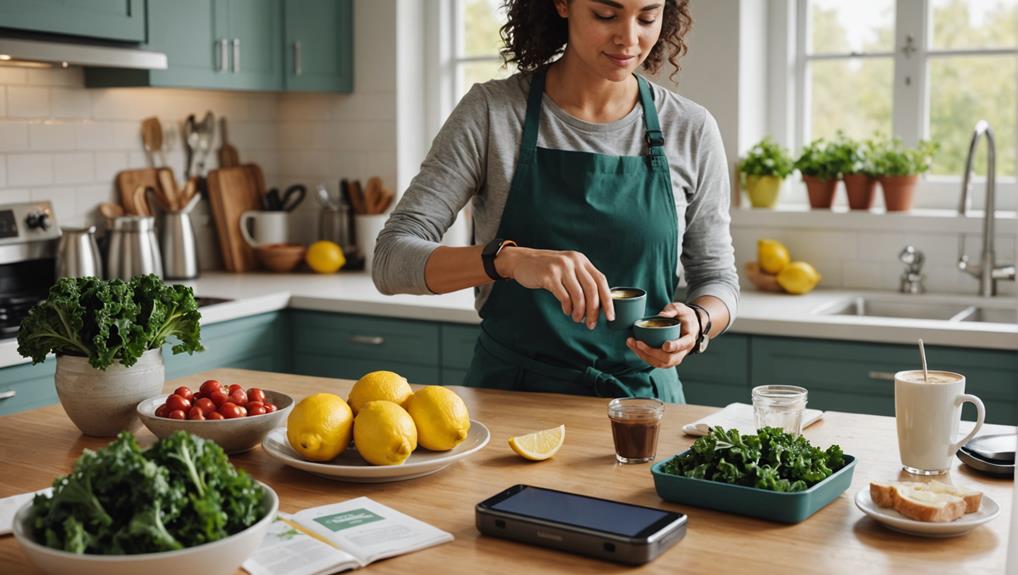
Three days' worth of meals can be prepped in under an hour, freeing up valuable time during the week for more pressing tasks. By making meal prep a habit, you'll save time, reduce food waste, and eat healthier. To get started, try dedicating one hour on the weekend to meal planning and grocery shopping. This will help you create a plan, make a list, and shop for the ingredients you need.
| Meal | Ingredients | Prep Time |
|---|---|---|
| Grilled Chicken | Chicken breasts, veggies | 20 minutes |
| Quinoa Salad | Quinoa, veggies, dressing | 15 minutes |
| Overnight Oats | Oats, milk, fruit | 10 minutes |
Use Multi-Purpose Items
By incorporating multi-purpose items into your prep routine, you'll maximize your storage space and reduce clutter. This approach allows you to prepare for the unexpected without sacrificing your daily life.
Dual-purpose items are essential in emergency preparedness, as they provide multiple benefits in a single product.
Some versatile tools to ponder:
- A portable water filter that also serves as a straw
- A first aid kit that includes a whistle and flashlight
- A multi-tool with a knife, scissors, and pliers
- A solar-powered lantern that also charges your phone
- A space blanket that doubles as a emergency shelter
These items aren't only convenient but also reduce the amount of gear you need to carry.
By investing in multi-purpose items, you'll be better equipped to handle unexpected situations without breaking the bank or sacrificing valuable storage space.
With a little creativity, you can turn your prep routine into a streamlined and efficient process that complements your daily life.
Create a Micro-Prep Schedule
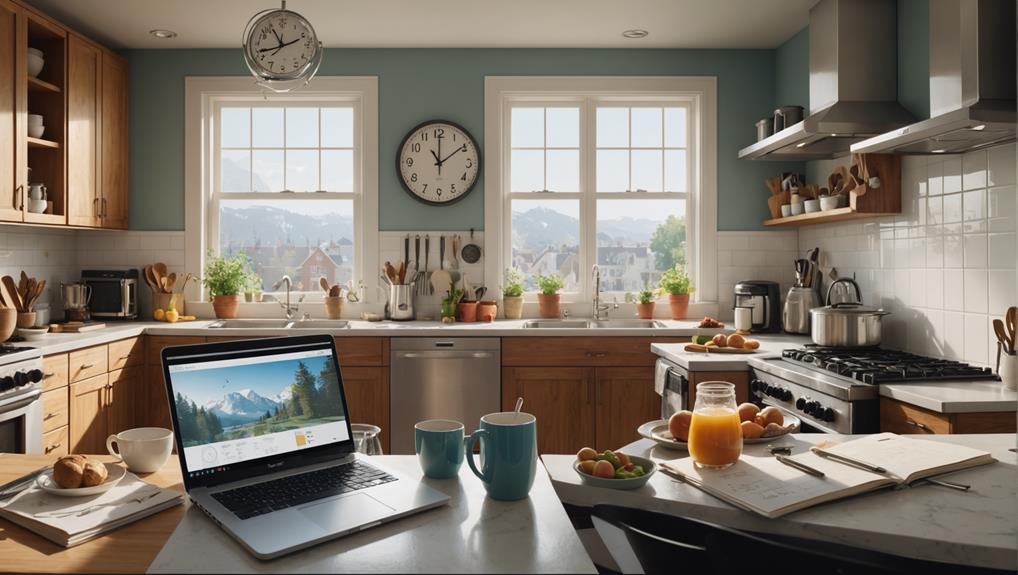
You can dedicate just 10 minutes a day to micro-prep tasks, like checking your emergency kit or practicing a survival skill, to make steady progress without disrupting your daily routine.
By incorporating micro-prep into your daily schedule, you'll be amazed at how quickly you can accomplish your prep goals.
To create a micro-prep schedule, start by identifying your prep priorities.
Break down larger tasks into smaller, manageable 'prep chunks' that can be completed in short time blocks.
For example, if you want to build a 72-hour kit, dedicate 10 minutes a day to gathering and organizing supplies.
On Monday, focus on gathering food and water; on Tuesday, work on first aid supplies; and so on.
Frequently Asked Questions
What if I Don't Have a Commute to Use Wisely?
If you don't have a commute, you can repurpose your home routines and leisure time to prep. Try using your morning coffee break to plan meals or dedicate 30 minutes of TV time to organizing your emergency kit.
How Do I Prioritize Needs When Everything Seems Important?
You face a never-ending to-do list, where everything screams "urgent!" To regain control, you prioritize needs by ranking necessities and allocating time blocks for each task, ensuring focused energy on what truly matters.
Can I Prep With Kids or Pets Demanding My Attention?
You're wondering if you can prep with kids or pets demanding your attention? Absolutely! Try kid-friendly prep activities, like scavenger hunts, and explore pet sitting solutions, like swapping with friends or hiring a sitter, to make it work.
What if My Schedule Is Unpredictable and Changes Daily?
When your schedule's a moving target, you adapt by creating flexible planning that accommodates daily adjustments. You prioritize tasks, break them into manageable chunks, and prep in short bursts, making the most of your unpredictable days.
How Do I Avoid Burnout While Prepping Without Sacrificing Daily Life?
To avoid burnout, you prioritize self-care strategies like meditation and exercise, and implement time-blocking techniques to schedule prep sessions, ensuring a balance between prep and daily life that works for you.
As an Amazon Associate I earn from qualifying purchases.







